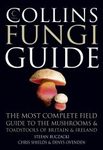![Keeping the Bees Keeping the Bees]()
Click to have a closer look
About this book
Biography
Related titles
About this book
From the jungles of South America to the deserts of Arizona, one thing remains consistent: bees are disappearing. A world without bees would be much less colourful, with fewer flowers. But that's not all – bees are responsible for up to one-third of our food supply, and the consequences of not taking action to protect them are frightening. While the media focuses on colony-collapse disorder and the threats to honey bees specifically, the real danger is much greater: all bees are at risk, whether it be from loss of habitat, pesticide use or disease, among other factors. And because of the integral role these insects play in the ecology of our planet, we may be at risk as well.
In Keeping the Bees, first published in 2010 in Canada, Laurence Packer, a melittologist whose life revolves around bees, debunks many myths about these creatures and takes us behind the scenes with scientists around the world who are working to save these fascinating creatures before it's too late.
Customer Reviews
Biography
Laurence Packer obtained his B.A. in zoology from the University of Oxford and a Ph.D. from the University of Toronto. Since 1988, he has been at York University, where he is currently a professor of biology. Keeping the Bees was the first selection of the David Suzuki Book Club.
Out of Print
By: Laurence Packer(Author)
277 pages, 4 plates with 8 colour photos; tables
"A world without bees would be a world without people."
– David Suzuki, award-winning scientist, environmentalist, and broadcaster
''Keeping the Bees is actually a love story. Packer's fascination with and devotion to v\^hat he calls these 'essential and beautiful little insects' permeates the book."
– The Globe and Mail
"A fascinating glimpse into the world of bee research."
– Winnipeg Free Press
"In Packer's hands, bee researchers are Indiana Jones-like adventurers, braving killer snakes in Australia [and] deadly heat in a Chilean desert, and enduring the deafening buzz of innumerable yellow-footed sandpit bees in England [...] A dramatic picture of the insect world."
– Ottawa Citizen



































